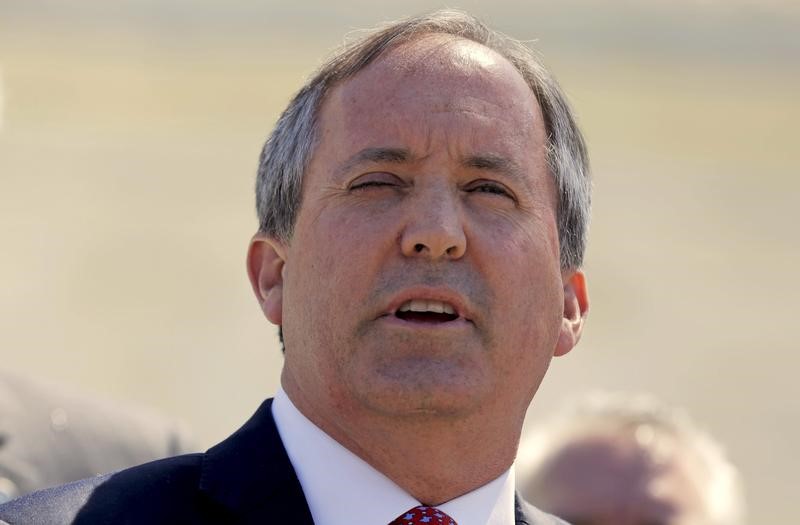By Andrew Chung
(Reuters) - President Donald Trump acted well within his authority in issuing his executive order on immigration, Texas Attorney General Ken Paxton told a federal appeals court on Wednesday.
Paxton, a Republican, attached a brief in asking the 9th U.S. Circuit Court of Appeals in California for permission to argue in support of Trump's temporary ban on travelers from seven predominantly Muslim countries.
Texas is the first state to back Trump in the closely watched litigation. A group of 15 states and the District of Columbia have filed papers with the appeals court in support of Washington state's challenge to Trump's Jan. 27 order, saying it harms their educational institutions and economies.
Paxton said the full court should reconsider whether a lower court judge was justified in halting the ban.
U.S. District Judge James Robart in Seattle suspended Trump's order across the country on Feb. 3. Washington state argued that it violated constitutional protections against religious discrimination.
That ruling was upheld by a three-judge panel of the 9th Circuit in San Francisco last week, raising questions about Trump's next step. The appeals court will soon vote on whether to reconsider the case with an 11-judge panel.
Trump's directive, which he said was necessary to protect the United States from attacks by Islamist militants, barred people from Iran, Iraq, Libya, Somalia, Sudan, Syria and Yemen from entering the country for 90 days. Refugees were banned for 120 days, except those from Syria, who were banned indefinitely.
The rulings put the order on hold until the courts can rule on the underlying merits. Ultimately, they will have to address questions about the extent of the president's power on matters of immigration and national security.
Traditionally, judges have been extremely cautious about stepping on the executive branch’s authority in such matters, legal experts said.
In the brief, Paxton said the order had a clear national security goal, to ensure proper vetting of foreigners seeking entry into the United States. It "reflects national-security interests implicated by the ongoing War on Terror against radical Islamic terrorists."
Paxton rejected any claim that the order discriminates against Muslims while favoring Christian minorities. If that argument is accepted, he said, it would jeopardize the government's ability to help persecuted religious minorities abroad by granting them refugee status.
Texas led the legal fight against President Barack Obama’s plan to protect up to four million immigrants from deportation, joined by 25 other Republican-led states. The challengers won a February 2015 nationwide injunction blocking the program before it was due to go into effect.
In June 2016, the Supreme Court split 4-4 in the case, leaving in place an appeals court ruling in favor of the states..

A major question in that litigation was whether Texas had legal standing to sue, an issue that the Supreme Court did not resolve. In Wednesday's brief, Texas did not address whether Washington and other states had standing to sue over Trump’s ban.